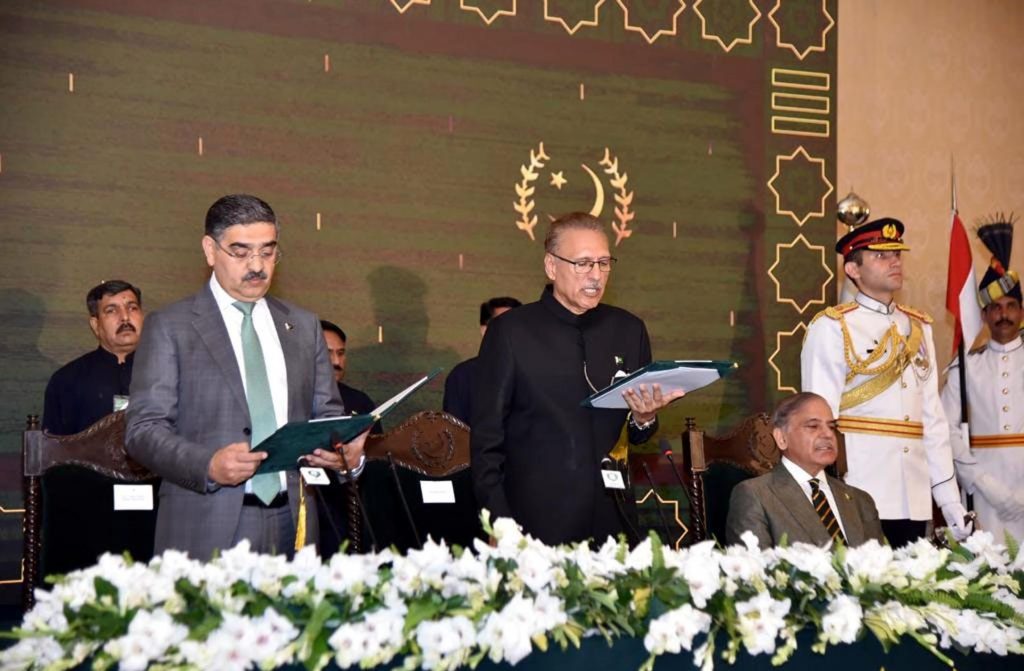
The Centre is maintaining a studied silence even as the interim Pakistan PM Anwaar-ul-Haq Kakar and his foreign minister, Jalil Abbas Jilani, a career diplomat elevated to the coveted office, have been talking about peace talks with India.
India’s reluctance to negotiate peace with Pakistan under a caretaker regime though having blessings of its powerful army and secret police, Inter Services Intelligence (ISI) could be attributed to the trust deficit between the estranged neighbours.
It is a known fact that whenever India-Pakistan tries to negotiate peace, India either faces full-scale invasion from her neighbour or terrorist attack on her sensitive installations. The much trumpeted visit of the then Indian PM, Atal Bihari Vajpayee to Lahore riding on bus from India to Pakistan in February 1999, was reciprocated by the Kargil war, and later the hijacking of an Indian Airlines jetliner to Kandahar, Afghanistan and an attack on the Parliament building in 2001.
All in New Delhi, including the leaders of the opposition parties, are maintaining silence on the possibility of resuming any peace dialogue with Pakistan despite its recent peace overtures. The caretaker PM, Anwaar-ul-Haq Kakar and his foreign minister, Jalil Abbas Jilani, a career diplomat elevated to the coveted office, have been talking about peace talks with India, but there is no Indian response so far.
There could be several reasons for India’s reluctance to resume any negotiations with her hostile neighbour, but the main factor could be attributed to the sudden rise of terrorist activities in the Pakistan Occupied Kashmir (POK). On the basis of such information, India’s Special Forces has neutralized as many as eight terrorists and destroyed their camps in POK.
An Indian newspaper has claimed it a surgical strike, but the army has denied. It, however, has stated that an infiltration bid along the LoC in Hamirpur area of Balakote Sector in Kashmir’s Poonch district was foiled. It was done just on the eve of the two-day BRICS conference, August 22-24, comprising Brazil, Russia, India, China and South Africa being held in South Africa.
Apart from his proximity with the army, Kakar has also inducted Mushaal Hussain, 34, winsome wife of a dreaded terrorist, Yasin Malik, 57, undergoing a life-term in Delhi’s Tihar jail, in his cabinet. It may be recalled that in February 2013, Yasin Malik was seen sharing the dais with the banned Lashkar-e-Taiba chief Hafiz Muhammad Saeed at a protest rally in Islamabad.
It took decades, but finally Malik was convicted on 19 May 2022, by a NIA (National Investigation Agency) Court in New Delhi on charges of conspiracy and waging war against the state. Subsequently, he was sentenced to the two counts life imprisonment and five 10-year prison sentences, all to be held concurrently. During the trial, he did not engage any lawyer and also pleaded guilty before the court.
In personal interview with the BBC, he had confessed to the killing of Kashmiri Pandit judge, Justice Neelkanth Ganjoo, for delivering death sentence to terrorist Maqbool Bhat, the founder of Azad Kashmir Plebiscite Front, a forerunner to the present day Jammu Kashmir Liberation Front (JKLF). He had also got killed four Indian Air Force officers and had a role in the kidnapping of Rubiya Sayeed, younger daughter of the then Union Home Minister, Mufti Mohammad Sayeed.
The marriage between Mushaal, who belongs to a well-known Karachi family and a graduate of the London School of Economics, and Yasin Malik, a terrorist, has always been intriguing to the Indian authorities.
Repeat of Rhetoric
Mushaal’s induction in the Pakistan cabinet to lead the human rights campaign might also lead to a worldwide campaign against India in coming months. It is also believed that by creating confrontation with India, the caretaker government might postpone the elections to next year. Under the law, the caretaker government should ensure free and impartial elections within three months of the dissolution of the National Assembly; but indications are that it is in no mood to conduct early polls as scheduled in the law.
The massive preparations for inducting a large number of terrorists at the LoC accompanied by the recent statement of Kakar, a confidante of the GHQ, ruling out any peace talks with India unless the Article 370 of the Constitution was restored indicate that early peace talks between them are being ruled out.
Indians’ bitter experience with Pakistan has taught them that it is irrelevant who wins the forthcoming polls in Pakistan, the peace could be negotiated only with the consent of the GHQ. It is a bygone conclusion that the political face of the new government would be subservient to the army and ISI. Earlier, in January this year, the outgoing PM, Shehbaz Sharif, had offered an olive branch for holding talks with New Delhi on all unresolved issues; but later, his office, perhaps chastised by the GHQ, clarified that such talks could only occur after the retraction of the August 5, 2019 decision on abrogation of the Article 370, which according to Pakistan, has altered the constitutional status of Jammu and Kashmir. Similarly, it has also asked for the restoration of Article 35A, which had denied thousands of Jammu-Kashmir residents living in the state for decades any civil rights.
The Indian response has been consistent that she is keen for having good relations with all its neighbours but for that, a terror-free environment was needed. Another reason for any prospects of bilateral talks between New Delhi and Islamabad to be kept in the cold storage is due to the refusal of Pakistan in taking any action against the terrorists, including those who had attacked Mumbai on November 26, 2008, also referred to as 26/11 attacks.
Return of the Old Hat
Few in India are amused at the elevation of Jilani as the new foreign minister. Earlier, he had served as his country’s Deputy High Commissioner in New Delhi in 2003, but was given marching orders, when he was found funnelling funds for separatist activities in Jammu and Kashmir. He was declared persona non grata. However, in his new avatar as foreign minister, he has proposed the revival of a decade-old peace plan for laying out a framework for ending hostilities between the two countries. The proposals were made during the regime of the military dictator, Gen Pervez Musharraf, and the then Indian PM Manmohan Singh.
Jilani recently told a Pakistani newspaper, The Express Tribune, that he is in favour of improving relations with India, which according to him, was contingent upon the resolution of all outstanding issues, including the long-standing issue of Jammu and Kashmir. It is being stated that the agreements were to be signed during the visit of Prime Minister Manmohan Singh to Pakistan in early 2007, but due to internal crisis within Pakistan, finally leading to the exit of Musharraf from power, the proposed accord could not be signed.
India’s Silence
In spite of being immediate neighbours, India has chosen to follow a no-reaction policy towards the ongoing turmoil in Pakistan. It could be attributed to India’s no-reaction policy approach for not being dragged into the cesspool of Pakistani politics. Also, since the abrogation of Jammu and Kashmir’s “special status” in August 2019, India has shown a greater degree of indifference towards Pakistan and is now broadly interested in maintaining limited contact with Islamabad.
There is near unanimity among the policymakers in New Delhi that in spite of talking about peace, Islamabad’s behaviour towards India might remain hostile in coming years. They do not want to commit the mistakes of the Vajpayee regime or his home minister, L.K. Advani, calling Muhammad Ali Jinnah a secular Muslim leader.













